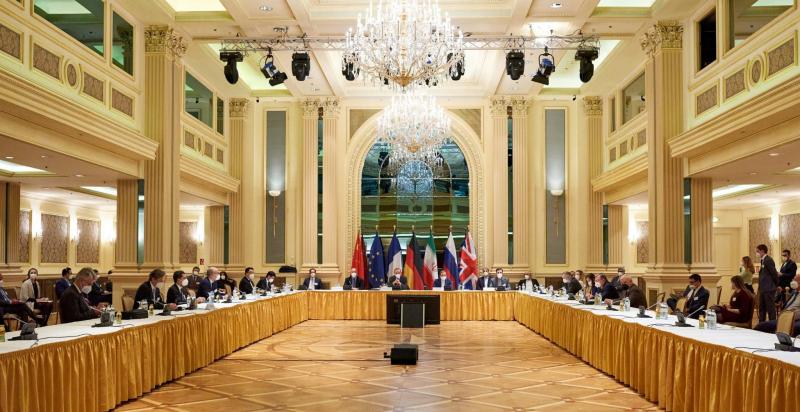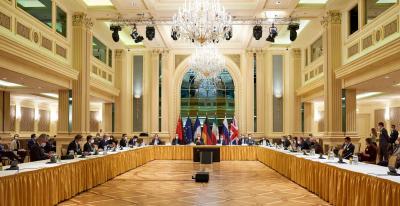As attention turns to the sixth round of nuclear talks in Vienna, Chinese Foreign Minister Wang Yi announced that the negotiations are nearing their end. In a speech delivered today, Friday, at a United Nations-sponsored disarmament conference, he emphasized the need to double diplomatic efforts to return to the agreement with Iran. He stated, according to Reuters, that "the actions of the United States" were the root cause of the Iranian issue.
Similarly, Russian envoy Mikhail Ulyanov hinted at some optimism, albeit slight. In a tweet on Twitter, the Russian Permanent Representative to international organizations in the Austrian capital noted that the next meeting of the Joint Commission for the Comprehensive Plan of Action (the nuclear agreement) will be held at the end of this week (either tomorrow, Saturday, or Sunday). He also suggested that the upcoming sixth round could be the final one, asking, "Will the sixth round be the final one? No one knows, but all negotiators hope so!"
Iran's chief negotiator and Deputy Foreign Minister Abbas Araqchi pointed to remaining sticking points in the negotiations, including the removal of international sanctions on dealing with his country due to U.S. penalties. However, he confirmed during a parliamentary meeting on Thursday that the texts exchanged between the participating delegations have become more transparent.
Russian Deputy Foreign Minister Sergey Ryabkov spoke on Wednesday about a few remaining issues that need resolution but ruled out the existence of insurmountable obstacles.
Sanctions represent one of these lingering files, as observers confirm, with Washington insisting on maintaining many of them if Tehran demands their complete removal. However, U.S. Secretary of State Antony Blinken clarified last Tuesday that he expected "hundreds" of sanctions to remain in effect on Iran even if both countries return to compliance with the nuclear agreement.
Yet, the U.S. Treasury announced yesterday the lifting of sanctions on three individuals in Iran and two companies linked to petrochemical operations in the country, prompting Blinken to assert in a simultaneous statement that this step is not directly related to the ongoing negotiations in Vienna.
It is noteworthy that since the beginning of April, intensive talks have been taking place between Iran and Western countries (France, Germany, Britain, Russia, and China, with indirect participation from a U.S. delegation) to revive the agreement signed in 2015, from which the previous U.S. administration withdrew in 2018.




